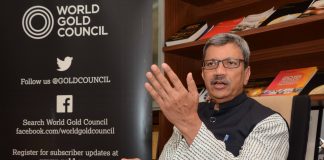https://www.freepressjournal.in/analysis/jatin-mehta-files-a-usd-5-billion-suit-against-de-beers-stanchart-and-kroll
Kroll’s refusal to face facts
The Jatin Mehta submissions before the Surat court have squarely put the blame on Kroll, which it says acted in concert with De Beers and SCB. Also see report at https://asiaconverge.com/2022/07/jatin-mehta-sues-debeers-stanchart-kroll-for-5-bn/
From the court documents, it becomes clear that Kroll did not even do its investigations properly.
For instance, it says that there was only one pricipal buyer — Sharjah-based Italian Gold FZE (“Italian Gold”) controlled by Haytham Salman Ali, and that the others were agents or distributors of Italian gold. In reality, Winsome had been selling to all the 13 entities, as individual entities on sale basis (passing of title) and not against commissions payable to distributors.
Haytham of Italian Gold testified that he had been dealing with Winsome since 2002, and had been in the jewellery trade for more than a decade supplying to various dealers in Middle East. He had been honoring his commitments so far. He acknowledged receipt of goods. But he suffered losses in commodity trades and derivatives due to which he was out of funds and hence unable to pay. That he has borrowed money from other buyers of Winsome Group to take care of his losses suffered on account of derivative and commodity trade and as such the other buyers are also not in a position to repay their dues immediately to Winsome Group. But he promised to arrange the funds to repay the debt of Winsome Group in 8-10 years. He would pay around of 75-100 million USD per annum but added that in case Winsome Group further continues with the supplies, he would be able to accelerate the payments and clear the dues in a shorter period depending on the volumes.
Haytham of Italian Gold testified that he had been dealing with Winsome since 2002, and had been in the jewellery trade for more than a decade supplying to various dealers in Middle East. He had been honoring his commitments so far. He acknowledged receipt of goods. But he suffered losses in commodity trades and derivates due to which he was out of funds and hence unable to pay. That he has borrowed money from other buyers of Winsome Group to take care of his losses suffered on account of derivative and commodity trade and as such the other buyers are also not in a position to repay their dues immediately to Winsome Group. But he promised to arrange the funds to repay the debt of Winsome Group in 8-10 years. He would pay around of 75-100 million USD per annum but added that in case Winsome Group further continues with the supplies, he would be able to accelerate the payments and clear the dues in a shorter period depending on the volumes.
He informed that the Group has issued legal notice which they have not appreciated as they are committed to make the payment. Kroll has not even considered this. SCB and Kroll demanded liquidation of Winsome and Forever, thus ending the possibility of recovering the outstanding money.
Kroll raises doubts whether the consignments were even shipped to the 13 parties. It had not even studies the D&B and EY reports, nor had it looked at the Reports of Experts appointed by the Sharjah Court of First Instance.
Kroll did not even examine the copies of all invoices, purchase orders, packing list and airway bills that had been provided to the Consortium of banks. Nor did it consider the required proof of delivery (POD) issued by Sharjah Aviation Services (SAS), which comes under Sharjah customs. Moreover, the banks had already obtained D&B Reports of the 7 out of 13 customers in the past. Nor did it look at the full incorporation documents submitted to ensure the factual position of all 13 companies.
Kroll claims that one of the ‘distributors’, Al Alam, was dissolved in August 2011. That is absurd. If so, how did Winsome and Forever transact with Al Alam in 2012-13? It is intriguing that banks have accepted such a finding of Kroll. Could it be that SCB did not want Kroll to bring out correct facts of the 13 buyer companies of Winsome so that on the basis of created Kroll report, other banks were obligated to file complaints?
The list of omissions and commissions is long. But the above examples show how flawed the report is, going strictly by what has been disclosed before the courts.
Notes: The information fiven above merely picks up some of the major discrepancies between the Kroll report (commisioned by SCB, and the findings ofg DB, export import invoices, and other legal documentation. The Kroll report appears to have relied more on hearsay than any proper investigation.
Kroll was formerly known as Duff & Phelps.
SCB is Standard Chartered Bank, also referred to as Stanchart. DB is Dun & Bradstreet. EY is Earnst & Young. CVC is the Indian government’s Central Vigilance Commission.
Sources: Documents submitted before the court, the suit itself, and discussions with Jatin Mehta’s lawyers. Kroll, SCB and De Beers did not respond to queries sent by email and Twitter.





































COMMENTS